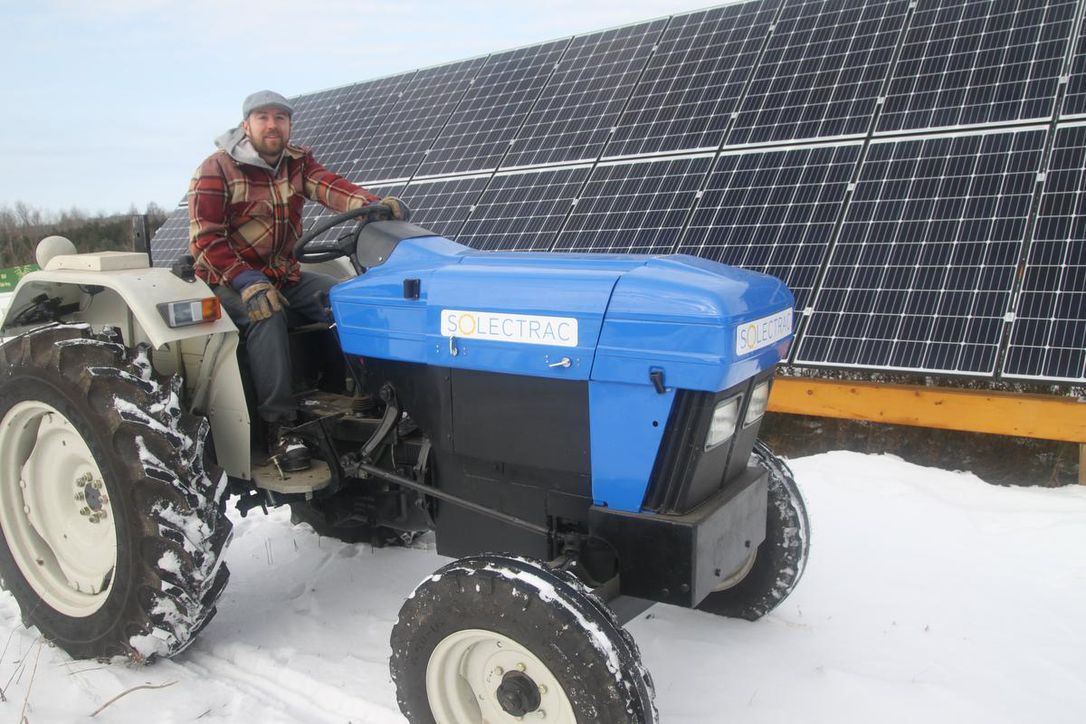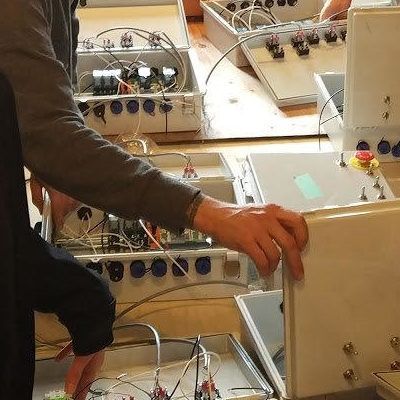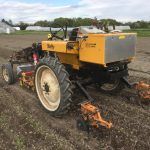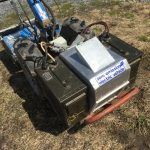“Farmers use LOTS of technology – in fact, farmers are the original ‘hackers’. I don’t know an ecological farmer who isn’t always tweaking and adapting tools for their unique circumstances,” said Thersa Schumilas, one of the founders of Open Food Network. This statement couldn’t be more true. Farmers are master tweakers, hackers, inventors, and innovators. The ability to maintain, alter, adapt and change their equipment is a big deal to farmers, both large and small scale. When it’s harvest time, and an essential piece of equipment goes kaput, farmers cannot wait several days for the repair person to fix the problem. In small to mid-scale ecological agriculture, farmers are engaging with one another to find even better ways of altering, building and fixing equipment and producing appropriate technology.
At this year’s EFAO Conference, there are several workshops and roundtable discussions that explore new tools and technology.
Reid Allaway from Tourne-Sol Co-operative Farm is hosting a workshop called “CAPÉ Autoconstruction as a Model of Community Tool Building.” When we asked Reid about how CAPÉ Autoconstruction works and who it serves, he replied:
“The CAPÉ is a broad-based producers’ coop that does a wide variety of things here in Quebec and the Autoconstruction group is just one small part of it. The autoconstruction group is a loosely knit group of technically-minded farmers who take on design and fabrication projects, which can be turned into collaborative build activities. This can help farmers learn new skills and support each other while building new tools to make their farms better”.

One of the unique aspects of ecological farming is just how connected the farmers are. (And they need to be.) Knowledge and information about what equipment and technology work and challenges that exist are transferred farmer-to-farmer. Reid says:
“Our greatest success is the ongoing demystification of technology which plays out every day on farms where farmers have learned from others that technology is not a black box but is just waiting for you to… appropriate it.”
Working together makes this possible. In the last 5 to 7 years, CAPÉ Autoconstruction has helped farmers build barrel washers, an s-tine bed former tool, a heavy single bed cultivator, and more.

And it hasn’t stopped here. Reid also is interested in how one can convert equipment that uses gasoline to electric. He’s co-facilitating a workshop on the Thursday of the EFAO conference with Tony Neale from Wheelbarrow Farm titled “Electric Vehicles for the Farm.”
“It is increasingly possible for farmers to utilize batteries and electric motors in place of internal combustion engines. As with all emerging technologies, there are both kinks to be worked out (troubleshooting mechanical issues, integrating a new tool into your system) and novel opportunities to be taken advantage of (cost savings, efficiency, marketing, agri-tourism, etc.)” quotes Tony.
In 2018 Tony help to build an electric tractor, which he funded using community bonds. Read more about his story here.

Reid recently converted one of his farm’s BCS two-wheeled tractor and then a Hefty-G cultivating tractor from gas to electric.
Technology doesn’t stop in the field. What about digital technologies? As things like crop planning, record keeping and payment processing become increasingly digitized, farmers are finding ways to use this technology to streamline their more arduous administrative tasks. Theresa Schumilas from Open Food Source and her global team are committed to making digital technology accessible to sustainable farmers by developing open-source software for growers:
“Most of us (as farmers) are ‘excluded’ from digital technology. We don’t know how to code, and we have a limited ability to adopt digital platforms for our needs. We also know or have a gut feeling that digital technology is increasingly important. If you stop to think about it – everything about food is digitized – except the manual labour parts we do, and increasingly, robotics and ‘smart’ equipment are changing that too.The global network I’m working with (Open Food Network) is a group of farmers, coders, designers, activists…. Who believe that food sovereignty and tech sovereignty are becoming more and more connected. Our collective goal is to work together in a global movement (like the tech side to La Via Campesina) to develop digital platforms and tools that will help the sustainable food movement connect and proliferate, and protect this code from corporate consolidation by licensing as open source. In parallel with seed savers, we are code savers, building a tech commons.”
Theresa and her colleague Alex have been working with a team to dig into how so-called ‘disruptive’ digital technologies are offering opportunities and challenges to small and mid-scale farmers. Alex and Theresa have developed a survey, coming out in a couple of weeks, in which they are hoping to answer this question.
“We already know how digital technologies and ‘smart agriculture’ is being adopted at larger scaled operations. But no one knows what the current state of things is for small and mid-scale farmers in Ontario, and what kinds of policies and programs might nudge things in progressive directions. So the first step is to describe what is happening now. What platforms and digital tools are farmers using? and What are the opportunities and challenges they see? “
Theresa will be facilitating a round table discussion at this year’s EFAO conference on Wednesday titled “Experiences with Technology”, where participants will hear from several farmers about how they are using digital tech to improve their farm operations.
And finally, over the past two years, the EFAO and the University of British Columbia have been working together to develop a web application, LiteFarm, which joins scientists and farmers together to advance science, and to help ecologically-minded farmers manage the financial and environmental sustainability of their operations. During the Conference, a Community Meeting will be held, which takes place over the lunch hour on Thursday, December 5th. It is with great pleasure (drumroll..!) that EFAO and UBC will officially launch the beta version of LiteFarm with the community of farmers that helped create it during this time. You will be able to try the application, and give feedback on the features and development plans for the year ahead. We really look forward to seeing you all there for what promises to be an exciting, fun and celebratory occasion.
Early bird registration for the 2019 EFAO Conference ends on November 4th. Find out more about this year’s conference, including the full program, here.



